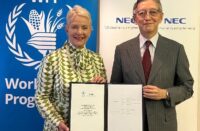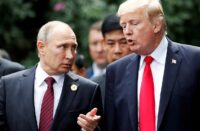 The Central Bank of Nigeria supplied a total of $7.05bn in foreign exchange in the second quarter of 2012, compared to $6.82bn offered in the first quarter, representing a decline of 3.37 per cent.
The Central Bank of Nigeria supplied a total of $7.05bn in foreign exchange in the second quarter of 2012, compared to $6.82bn offered in the first quarter, representing a decline of 3.37 per cent.
The CBN, in a publication on Thursday, titled, “Developments in the external sector of the Nigerian economy for the second quarter of 2012†stated that of the total $7.05bn, $5.38bn was supplied to the Wholesale Dutch Auction System, while $1.67bn was given to Bureau de Change.
According to the report, aggregate demand for foreign exchange by the authorised dealers consisting of WDAS and BDC operators during the period under review stood at $7.18bn, indicating a decline of 0.74 and 28.26 per cent when compared with the levels recorded in the preceding quarter and corresponding quarter of 2011, respectively.
The report stated that the development was attributed to the ongoing reform in the oil sector, which was aimed at ensuring efficient allocation of resources through the liberalisation of the downstream oil sector.
It added that the currency composition of foreign reserves showed that the holdings of foreign reserves in dollar was $29.09bn and constituted 82.1 per cent of the total.
“Other currencies in the basket include euro (6.9 per cent), pounds (2.2 per cent), Chinese Yuan (1.4 per cent) and SDR units (7.2 per cent). The composition of euro at 6.9 per cent is still high considering the prevailing economic conditions in the euro-zone area and should be diversified to other relatively stable currencies. The Japanese yen accounted for 0.05 per cent while holding in Swiss franc was 0.004 per cent,†it said.
The report also said the level of external reserves as at end of June 2012 stood at $35.41bn as against $35.20bn and $31.89bn in the preceding quarter and corresponding quarter of 2011, respectively.
It noted that the current level of reserves could finance 11.1 months of foreign exchange disbursements and 7.3 months of imports compared to 10.8 months of foreign exchange disbursements and 7.8 months of imports recorded in the preceding quarter.
On capital inflows, the report stated, “In the period under review, the aggregate foreign capital inflows dropped by 37.79 and 13.78 per cent to $3.44bn when compared with the preceding quarter and the corresponding quarter of 2011. Of the total capital inflows, FDI accounted for 23.22 per cent while portfolio investment accounted for 76.78 per cent.â€ÂÂ
Further analysis revealed that FDI inflows dropped from $1.72bn in the preceding quarter to $0.80bn in the review period.
Also, portfolio investment inflows dropped from $3.82bn recorded in the preceding quarter to $2.64bn.
Source: Punch (written by Ademola Alawiye)






